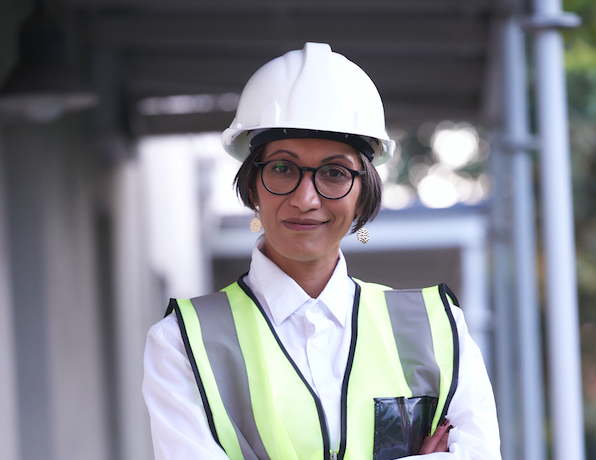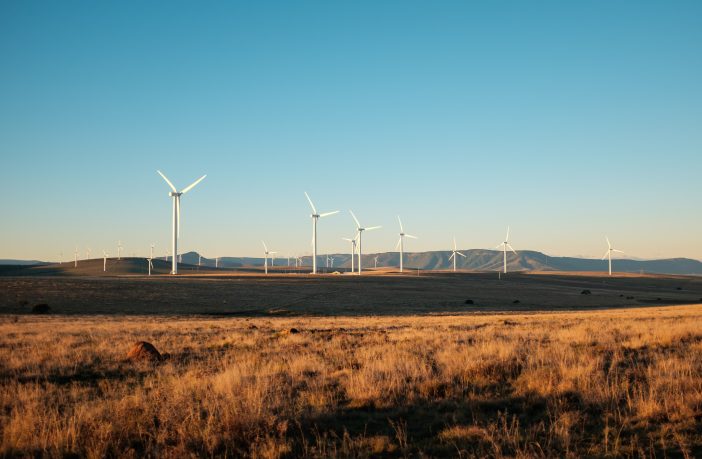- The South African Wind Energy Association (SAWEA) expects 2022 to be a year defined by the accelerated uptake of green power procurement and South Africa’s intensifying commitment to the climate agenda, alongside a number of other shifts in the energy space brought on by changes in technological deployment.

Mercia Grimbeek, Chair of SAWEA. Image credit: SAWEA
“We cannot separate wind power and the climate dialogue and view our sector as a key implementer for the country to decarbonise its power sector and increase its energy availability simultaneously,” said Mercia Grimbeek, Chair of SAWEA.
The Association pronounces that renewable energy production needs to be scaled up significantly to meet climate change objectives agreed to at the Paris Agreement by many countries including South Africa. At present, emission trends are not on track to meet these goals. In South Africa this will require a profound transformation of the energy generation system, as government plans still fall far short of emission reduction needs. Renewable energy and energy efficiency provide the optimal pathway to deliver the majority of the emission cuts needed at the necessary speed. Together they can provide a significant percentage of the energy-related CO2 emission reductions that are required, using technologies that are safe, reliable, affordable and widely available.
Grimbeek envisions a decarbonised power sector, dominated by renewable sources, being at the core of the transition to a sustainable energy future. Although the power sector has made significant progress in recent years, the speed of progress must be accelerated. Industry, transport and the building sector to name a few will need to use more renewable energy. The Energy Transition makes economic sense and stimulates economic activity in addition to the growth that could be expected under a business as usual approach. With holistic policies, the transition can greatly boost overall employment in the energy sector.
“There is a definite trend for the world to shift to cleaner sources of energy generation and climate change is moving to the forefront of framing long term business strategy and plans. The finance world is becoming increasingly unsupportive of funding new coal generation projects. Societal pressure is increasing toward more sustainable sources of energy generation in the face of the real effects of climate change,” explained Grimbeek.
The Association has noted that both industry and manufacturers are under increasing pressures to reduce their carbon emissions and carbon footprint. All of these pressures necessitate governments and regulators to draft regulations to increase the deployment of renewable energy. This in itself is a hugely positive impetus for the South African market. With the current status of the energy market in South Africa these trends not only support the execution of the IRP 2019 but definitely encourage a more considerable wind energy generation in excess of that.
South Africa can address fundamental challenges of energy access, energy security and climate change through the deployment of renewable energy. We can harness our abundant potential of increasingly cost-competitive renewable energy to service the growing demand for electricity and avoid a potential fossil-fuel lock-in.
Something else to look out for if we follow international trends, is an increase in the types of technologies being deployed to maximise the deployment of renewables. Renewable technologies also present ample potential for the creation of new industries, job creation and localisation across the value chain. This presents a unique opportunity for the South African industry to expand into new avenues of production driven by new technologies, such as storage being introduced. Furthermore, it provides opportunities to increase the local manufacturing of various components over time. With consistent procurement facilitated by supporting regulations the opportunities to increase local manufacturing is hugely positive.
The renewable energy sector uses various sources of data to support sector growth and in certain instances to address sector challenges. By way of example, the Renewable Energy Development Zones (REDZ) provide areas of expedited development with shorter timeframes and hence a faster roll out of renewables. Similarly, the sector monitors the data released by the system operator to ensure that development is concentrated in areas where capacity is available. In addition, where data reveals grid constraints, it provides the opportunity for the sector to engage the system operator to find efficient solutions to transmission hurdles. Like any other business the renewables sector is constantly assessing commercial data to ensure that the cost competitiveness of the sector remains.
It is clear that decarbonising the energy sector is more than just fossil fuel replacement. It is a means of job creation through direct construction and subsequent operations and also the associated industrialization. South Africa is on the road to fully embracing the potential of its natural resources.
“We are a country that has the chance to accelerate the deployment of renewable technology and become a world leader in clean energy production. So, I expect that the sector will play a role in building institutional capacity to develop and implement national policies for increased access to electricity, whilst pursuing the low carbon development of the electricity sector,” concluded Grimbeek.
Author: Bryan Groenendaal















